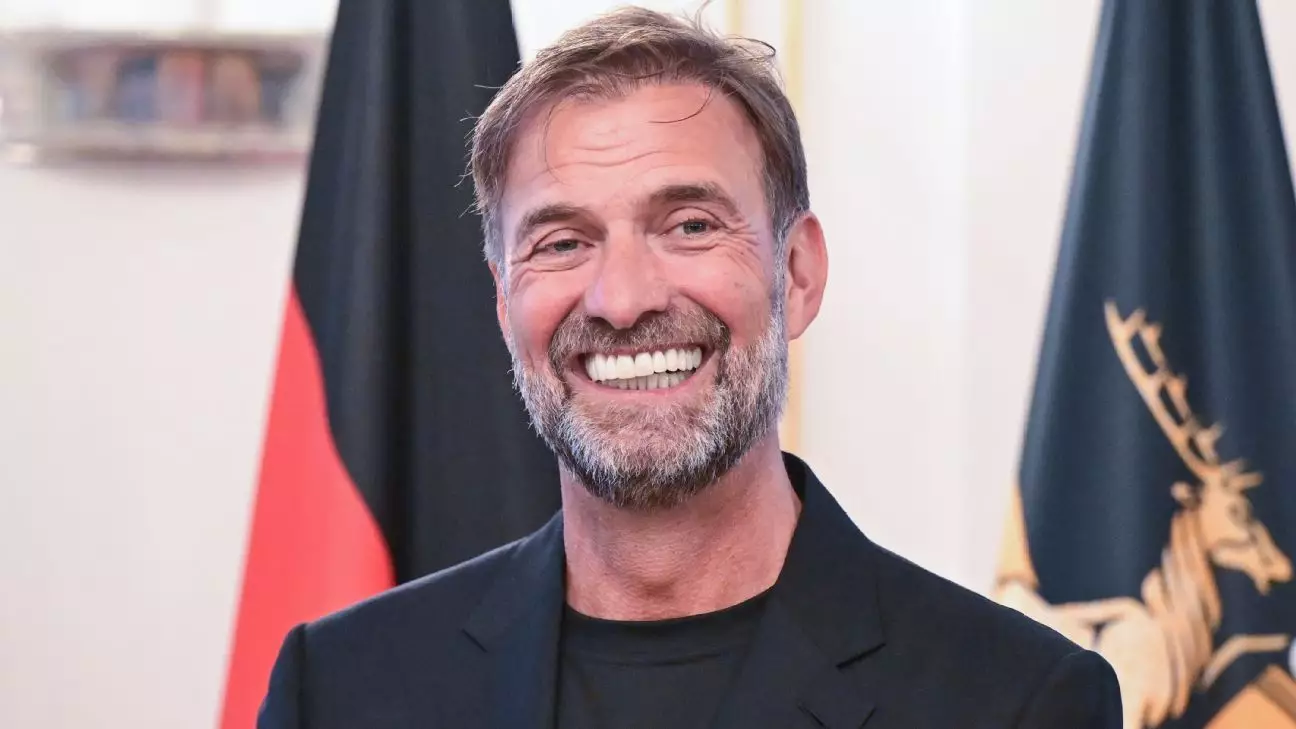Jürgen Klopp has long been synonymous with passionate sideline management, where his tactics, charisma, and connection with players have redefined the football experience. However, in a surprising shift, Klopp is transitioning to a senior management role as the head of global soccer for the Red Bull group—a move announced on Wednesday that marks the end of an era at Liverpool and the beginning of a new chapter in his illustrious career. Although he is no longer donning his signature baseball cap and tracksuit, this career pivot will challenge him to adopt a strategic mindset, moving away from direct coaching to addressing larger organizational mandates within football operations.
Red Bull’s football portfolio is nothing to scoff at, boasting clubs like RB Leipzig, New York Red Bulls, RB Salzburg, and Brazilian outfit Red Bull Bragantino. Klopp’s extensive experience and international reputation are expected to mold Red Bull’s strategic vision, which will involve not only guiding coaches but also enhancing scouting efforts across the globe. Yet, with details emerging of a release clause in his contract allowing him to manage the German national team if called upon, many speculate about how long Klopp will remain in this new role before returning to the touchline.
Managing Liverpool was no small feat. Klopp guided the club to significant achievements, including Premier League and UEFA Champions League triumphs. However, it came at a cost; the mental strain was palpable, leading to a well-documented decision to step back. “There was a day… I realised I can’t do it anymore,” he stated in his parting interview with Liverpool. This confession highlights the demanding nature of high-profile football management and raises questions about the sustainability of such intense commitments.
Klopp initially sought a break, hoping to spend more time with family and savor his role as a grandfather. He turned down several high-profile management offers, including an enticing one from the United States Soccer Federation, clearly wanting to prioritize personal well-being over immediate career ventures. His emphasis on wanting a phased return points to a thoughtful approach, yet, much like his previous trajectory post-Dortmund, it seems Klopp’s innate pull towards competitive coaching may override his desire for a quieter role.
The Uncertain Future Ahead
While Klopp’s move into a global football leadership position may seem like a long-term strategy, football history does not support such a finality—especially for someone of his caliber. His track record poses the question: can a coach renowned for his hands-on style adapt to a role filled with administrative duties and broader tactical oversight? Red Bull is known for its innovative, fast-paced football philosophy, and Klopp is expected to align these roles without straying too far from his coaching roots.
Moreover, as he guides Red Bull’s various clubs, with the expectation that he will mentor and support coaches, all eyes will inevitably be on Klopp when it comes time for evaluations or potential managerial changes within the organization. His management experience adds an intricate layer to his new role, mixing the complexities of coaching dynamics with the needs of upper management. This duality could create unique tensions, particularly if Klopp finds himself needing to intervene in areas typically managed by football executives.
The looming question persists: how long will Klopp remain away from managing a club? Despite his current role, there is a broadly held belief that this isn’t the end of his time on the sidelines. With the German national team management position currently held by Julian Nagelsmann, speculatively, Klopp could be eyeing that spot, particularly with the 2026 World Cup on the horizon. Although Nagelsmann has extended his contract, his youth and recent managerial experiences position him as a target for any elite club vacancies that arise, leaving the door open for Klopp to return sooner rather than later.
Klopp’s managerial career has been defined by an unwavering passion and an astonishing ability to galvanize those around him. His infectious enthusiasm for the game whether on the pitch or from the sidelines has endeared him to fans. If Klopp finds fulfillment in his role with Red Bull, it may set a new precedent for manager transitions in football. However, if his past experiences are any indication, the sideline may call him back into action sooner than anticipated. Thus, while the immediate future sees Klopp stepping into a new office role, the heart of the football world remains acutely aware of the rhythmic pull of the touchline—the one place where it all truly began for him.

